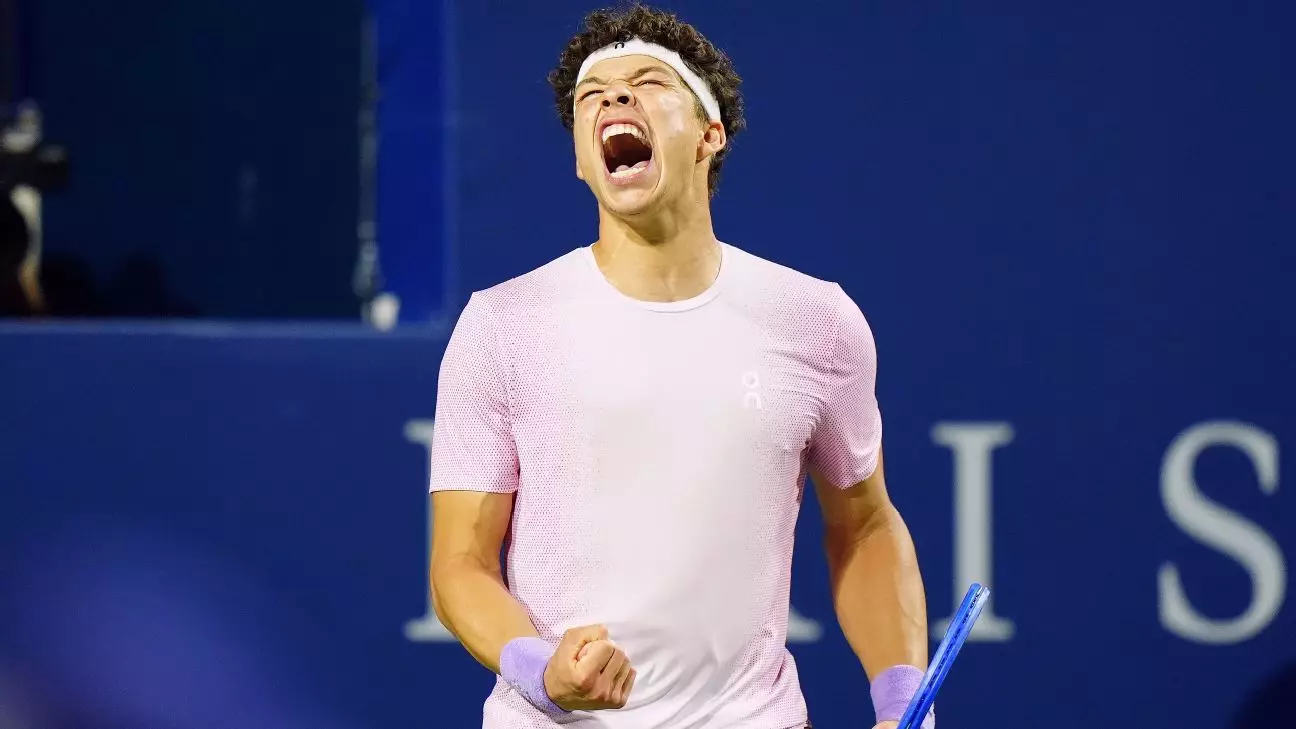Ben Shelton’s recent victory at the National Bank Open exemplifies tennis beyond mere physical prowess—it highlights the critical importance of mental resilience. Facing Flavio Cobolli, a tenacious opponent who had previously challenged him in three-set battles, Shelton demonstrated an admirable capacity to rally when the odds were seemingly stacked against him. Trailing in the final set, Shelton refused to succumb, turning a 4-2 deficit into a hard-fought victory. This match vividly underscores that at the elite level, mental toughness can be the difference between defeat and triumph. Shelton’s ability to stay focused amid tension and pressure reveals a player with a burgeoning exceptional competitive mindset.
Such resilience isn’t innate; it emerges through relentless effort, self-belief, and an unyielding commitment to improvement. Shelton’s acknowledgment of struggling with his signature weapons—the serve and forehand—yet still managing to find a way to win, punctuates a larger truth about sports performance: perseverance often outshines raw skill when mental grit is involved. His victory is emblematic of how inner strength can elevate a player, especially in moments when physical skills falter.
Challenging the Status Quo and Embracing Growth Opportunities
Despite the pressure and intensity, Shelton’s journey demonstrates his willingness to confront adversity head-on. This match wasn’t just about winning; it was a testament to his growth trajectory. His recent record—including victories in Tokyo and Houston—showcases a player who is gradually ascending the ranks, yet he still faces hurdles typical of young athletes. His win marked a milestone: 100 ATP tour victories in just 169 matches, a statistic that speaks volumes about his rapidly developing career. Yet, what is most impressive isn’t just these numbers but how Shelton interprets setbacks as opportunities to evolve.
His performance against Cobolli also raises questions about the modern tennis athlete’s mindset. More than ever, players like Shelton refuse to be defined by early successes or failures alone; they understand that resilience and adaptability are key to longevity. Shelton’s ability to “find a way” during difficult moments signifies a shift in tennis culture—players embracing mental toughness as a core component of success rather than treating it as an afterthought.
The Future of Tennis Lies in Inner Strength
Shelton’s upcoming match against Alex De Minaur will serve as another litmus test for his growth as a player. De Minaur’s consistent grinding style will test Shelton’s mental grit and physical stamina. What remains clear, however, is that Shelton’s resilience—that unrelenting drive to overcome setbacks—sets him apart from many of his peers. His journey reflects a broader truth about the sport: the players who excel are not only those with technical skill but also those who possess an unbreakable spirit.
In a sport where mental toughness often determines the finer margins of victory, Shelton’s rise serves as inspiration. His story emphasizes that pushing through exhaustion, managing on-court tensions, and staying committed under pressure are qualities that can define a player’s career. The future of tennis will increasingly celebrate athletes who see resilience not merely as a trait but as the foundation of greatness. Shelton’s narrative continues to unfold, shaping a new paradigm for aspiring champions: mental strength fuels true success.


Leave a Reply